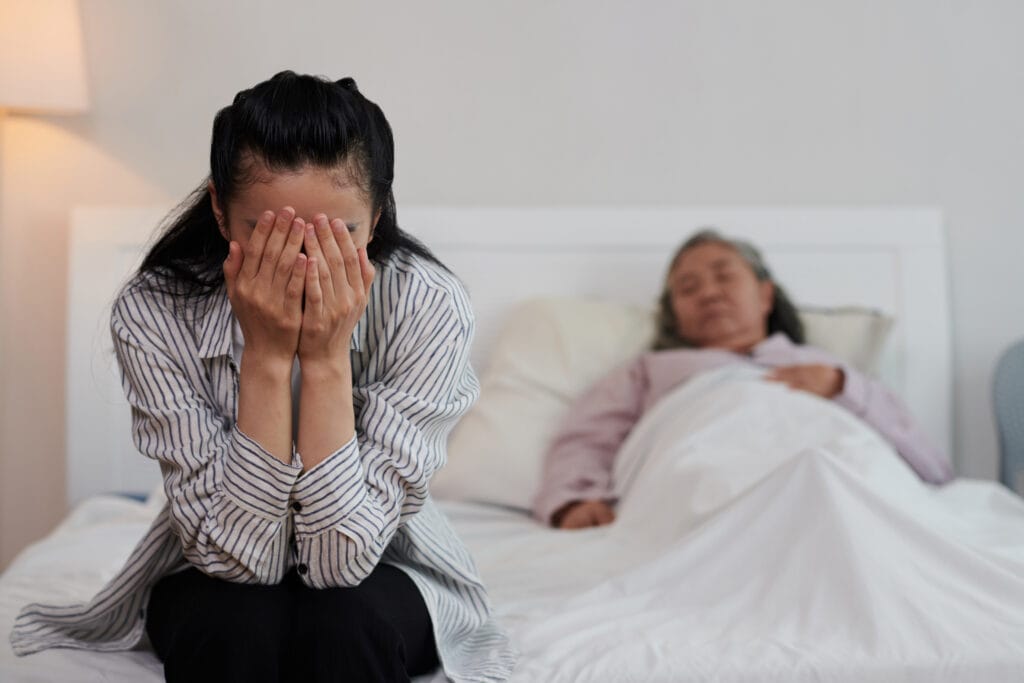Same topic
Topic "Memory loss in the elderly" with you to learn about related content and topics
Together to bring better healthcare solutions to the elderly.
-
Tips for Caring for the Elderly with Dementia
-
Intermediate Stage Dementia | Living with and Caring for
-
Early stages of dementia | living with and caring for
-
Improve your memory and mental health with 10 games
-
Treatment of memory loss in the elderly
-
Diet to prevent memory loss in old age
-
Signs of Alzheimer's disease and care tips
-
Distinguishing between age-related memory loss and dementia
-
Stages and Symptoms of Alzheimer's Disease
-
Causes of Alzheimer's disease and risk factors
Caregiving advice is something every caregiver needs, especially a family member!
Witnessing someone you love, go through stage of disease will make members, especially children and grandchildren, feel as if they are losing their loved ones little by little!
You may have or are in need of learning about early stage of disease and middle stage of the disease to recognize earlier.
At the same time, it is important to keep in mind important points that will help both you and your loved ones deal with the many problems that this disease brings.

Keep calm
The Stages and symptoms of dementia may give rise to defiant, angry outbursts or aggressive behavior.
Always remember that your loved one may not be conscious of everything they say or do, so be
- Stay calm in the face of anger and frustration.
- Keep your voice soft and gentle to soothe your loved one and reassure them that everything is okay.
Patient
The person repeats the same sentence or performs the same behavior over and over again. An effective way to break the cycle is to redirect the person to a different type of activity.
Try not to lose patience, but if you feel like you can't cope, take a few minutes to give yourself a break.
If you are a caregiver, you should occasionally arrange some services. respite care give yourself a break.
Many caregivers feel unfilial and guilty if they leave their loved ones in the care of others!
However, in reality, it provides much-needed rest, which can be helpful in clearing the mind and coping with the stress that dementia creates.
Keep your loved ones safe
Wandering, getting lost, forgetting one’s identity… are common symptoms of this disease. If your loved one shows the above signs, then take reasonable safety precautions.
For example, you can install a lock higher on the door or set an alarm to alert you when they open the front door.

GPS bracelet are a good idea as they provide details of your loved ones' names and addresses in case of an emergency.
Remind them to carry a name tag containing necessary information such as their name, caregiver's phone number, address, etc. In case of need, people around can still help.
Beware of paranoia
Paranoid thinking is common in people with dementia, so be prepared for loved ones to express concerns about this trait.
So encourage your loved one to voice their concerns to see if you can help put their mind at ease.
- Agitation and paranoia requires a gentle, soothing approach, so don't be persuaded to speak up or get discouraged.
- Don't dismiss their feelings – let them know you're there for them and they're safe.
- Play soothing music, keep noise to a minimum, and speak in a soft voice.
Inappropriate behavior
You may be shocked to hear your loved one use inappropriate language or display unwanted behavior.
Don't react if your parents say or do something completely out of the ordinary and try not to make a big deal out of it.
Always remind yourself that it's not your loved one who's behaving this way, it's their illness.
Accept When You Can't Cope
Don't feel ashamed if you find your loved one's behavior too difficult for you to deal with. You are not a professional caregiver!
So if this isn't your forte, look for other options, like bringing your parents in. nursing home, besides today there are still many options choose home care
For a generation accustomed to independent living, in-home care is a good option, allowing them to stay in familiar surroundings, surrounded by the things that have accompanied them all their lives, while receiving 24/7 care.
A dedicated live-in carer, trained in aged and dementia care, provides companionship, security, reassurance and personal support around the clock.
Hiring a live-in caregiver is not “giving up.”

Conclusion
Some families simply do not want to upset and psychologically impact remaining family members with caregiving.
Either there is no time to care, or the children live too far away to be able to support directly.
Whatever your reason, professional help can help relieve your responsibility, stress and frustration, and provide peace of mind that your loved one is safe and supported.
Are you looking for home or facility-based care?
Hio is a pioneering platform providing comprehensive and personalized elderly care services at home and medical facilities. No additional costs, change caregivers without additional costs, immediate refund if customers are not satisfied, care information is continuously updated to ensure peace of mind for families.




